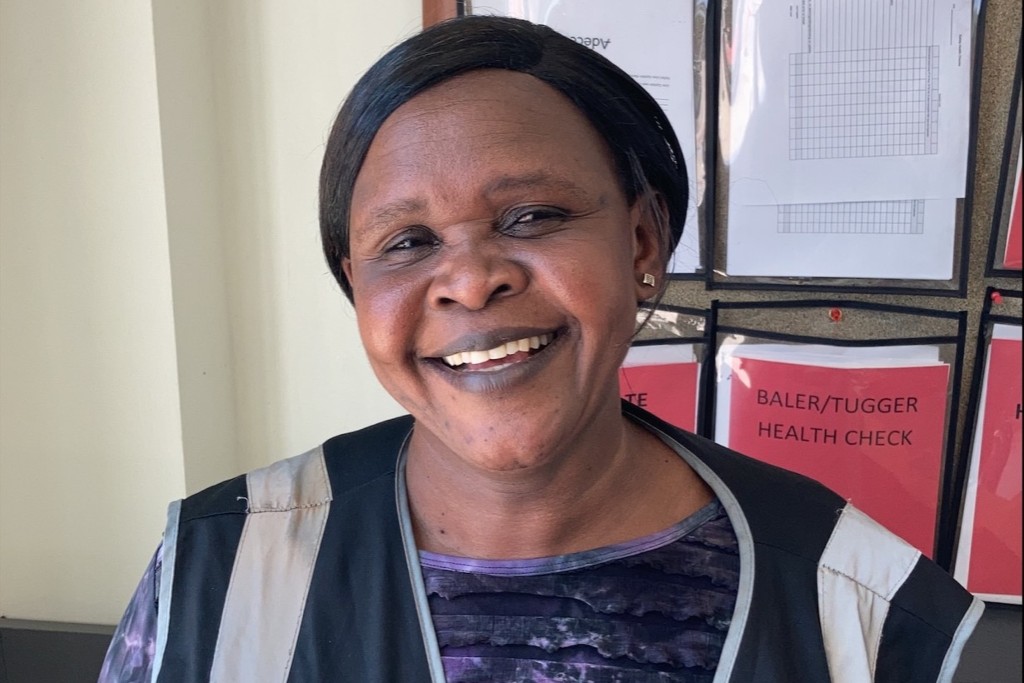Companies are heading into a more unpredictable and volatile employment market, post-pandemic. Upskilling and reskilling employees can help companies better fill existing roles – and make room for new roles of the future.
January 6, 2022
Future of Skills
Inclusive Futures
Companies are emerging from the pandemic and being forced to adapt their operations to thrive in a new age of unpredictable and volatile markets and workloads. As research from McKinsey shows, to emerge stronger and more resilient, they need to invest in the upskilling and reskilling of their people. Upskilling and reskilling employees can help companies better fill existing roles – and make room for new roles of the future, too.
According to Boston Consulting Group’s Decoding Global Reskilling and Career Paths study, more than two-thirds of workers globally are willing to retrain for new jobs, an attitude that may set the stage for vast workplace changes after the pandemic ends. And yet, the Adecco Group’s Resetting Normal: Defining the New Era Of Work 2021 report, which surveyed approximately 15,000 global respondents, found that just 58% said that their company had a clear strategy to train employees in the new digital skills that the company will need in future.
Upskilling and reskilling is the responsibility of both companies and employees alike. At the Adecco Group, Federica Gasparini, a former Adecco Group Branch Manager, was nominated by her region to the International Future Leaders Programme (IFL), an 18-month leadership development initiative for early-in-career high potential talents.
Gasparini first joined the Adecco Group in 2014 as a sales intern, but she quickly climbed the ranks and was promoted to retail account specialist, taking care of business relationships with clients. After few months she moved to Rimini, and in 2017, became a Branch Manager, where she was responsible for directing all operational aspects of the branches, including distribution, customer service, administration, financial aspects, and sales.
Being a branch manager Federica entered the IFL programme where she learned the skills to accelerate her career and successfully managed to leverage these skills and move from a Branch Manager role to a Global Transformation PMO.
“I had always been interested in acquiring a broader vision of our company, not limited to Adecco and Italy, and working in an international environment,” she told the Adecco Group. “IFL was the was exactly the opportunity I was searching for.”
The 18-month programme gave Federica and her fellow participants an opportunity to deep dive into a diverse range of topics, including agile management, emotional intelligence, mindful leadership, among many others.
“My teammates and I developed a business case, while I had the chance to design and create a hypothetical new Channel Strategy for The Adecco Group, building it from the actual practices of the branches,” said Gasparini. “We also had the opportunity to look closely into the global company strategy, which widened our vision of what is really happening in the Adecco Group.”
The opportunity gave her the chance to upskill into a different position, an opportunity she had been working towards.
“It’s incredibly satisfying to know that the company has been investing in me, and helping my professional growth with many initiatives,” Gasparini said. “That wasn’t an end in itself, but had the purpose to effectively support my career path.”
According to Boston Consulting Group’s Decoding Global Reskilling and Career Paths study, more than two-thirds of workers globally are willing to retrain for new jobs, an attitude that may set the stage for vast workplace changes after the pandemic ends. And yet, the Adecco Group’s Resetting Normal: Defining the New Era Of Work 2021 report, which surveyed approximately 15,000 global respondents, found that just 58% said that their company had a clear strategy to train employees in the new digital skills that the company will need in future.
Upskilling and reskilling is the responsibility of both companies and employees alike. At the Adecco Group, Federica Gasparini, a former Adecco Group Branch Manager, was nominated by her region to the International Future Leaders Programme (IFL), an 18-month leadership development initiative for early-in-career high potential talents.
Gasparini first joined the Adecco Group in 2014 as a sales intern, but she quickly climbed the ranks and was promoted to retail account specialist, taking care of business relationships with clients. After few months she moved to Rimini, and in 2017, became a Branch Manager, where she was responsible for directing all operational aspects of the branches, including distribution, customer service, administration, financial aspects, and sales.
Being a branch manager Federica entered the IFL programme where she learned the skills to accelerate her career and successfully managed to leverage these skills and move from a Branch Manager role to a Global Transformation PMO.
Seeing the bigger picture
In 2018, Federica was first told that she would be on the shortlist to participate in the second edition of the IFL programme. The IFL programme aims to develop leaders with strong commercial skills and the ability to deliver solutions to real-time business challenges through innovation, and also to combine their talents with company best practices to ensure continuous improvement in its services. The purpose of this is two-fold; increasing the Adecco Group’s ability to retain and develop high potential, early-in-career talent, and create a strategic pool of high-quality internal candidates to feed the leadership pipeline.“I had always been interested in acquiring a broader vision of our company, not limited to Adecco and Italy, and working in an international environment,” she told the Adecco Group. “IFL was the was exactly the opportunity I was searching for.”
The 18-month programme gave Federica and her fellow participants an opportunity to deep dive into a diverse range of topics, including agile management, emotional intelligence, mindful leadership, among many others.
“My teammates and I developed a business case, while I had the chance to design and create a hypothetical new Channel Strategy for The Adecco Group, building it from the actual practices of the branches,” said Gasparini. “We also had the opportunity to look closely into the global company strategy, which widened our vision of what is really happening in the Adecco Group.”
The opportunity gave her the chance to upskill into a different position, an opportunity she had been working towards.
“It’s incredibly satisfying to know that the company has been investing in me, and helping my professional growth with many initiatives,” Gasparini said. “That wasn’t an end in itself, but had the purpose to effectively support my career path.”
Bringing real value to the company
By taking on a new and different role, Federica has had the opportunity to learn and gain new skills and knowledge that will further support her professional growth. With that comes the chance to use the experience gained in the field and her vision to bring real value to the company.
“To play an active role in the transformation we are experiencing is incredibly motivating,” Gasparini said.
She says that anyone thinking of reskilling or upskilling into a different role should just “go for it.”
“Change is never easy, and when you abandon your comfort zone the unknown can feel a little bit scary, but you can’t achieve new successes without taking new chances,” Gasparini said.
And to anyone thinking about applying to the IFL programme, Gasparini said to “apply, and then once you are in the program, take all you can from it.”
“This program enables you to discover and understand so much. It allows you to work closely with so many different colleagues, gaining a better understanding of their culture, their ideas, and their points of view, in an environment that supports your personal and professional growth in ways that you could never have imagined before,” Gasparini said.
The window of opportunity to reskill and upskill workers has become shorter in the newly constrained labour market. For those workers set to remain in their roles, the share of core skills that will change in the next five years is 40%, and 50% of all employees will need reskilling (up 4%), according to the WEF’s Future of Work 2020 report.
As organisations adapt to new ways of working, they must recognise the value of human capital investment if they are to develop a resilient workforce and a new generation of leaders for the future.



